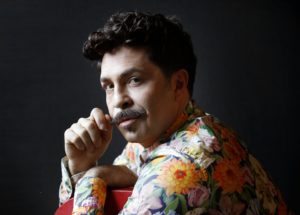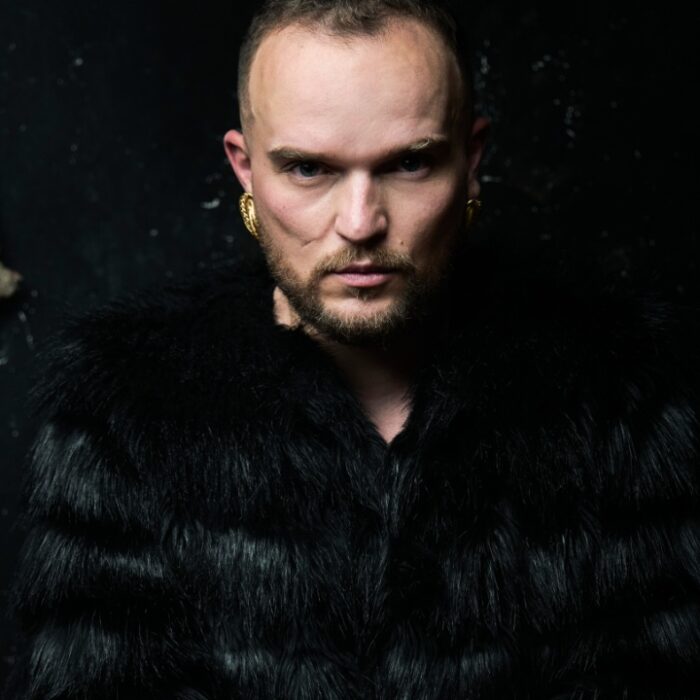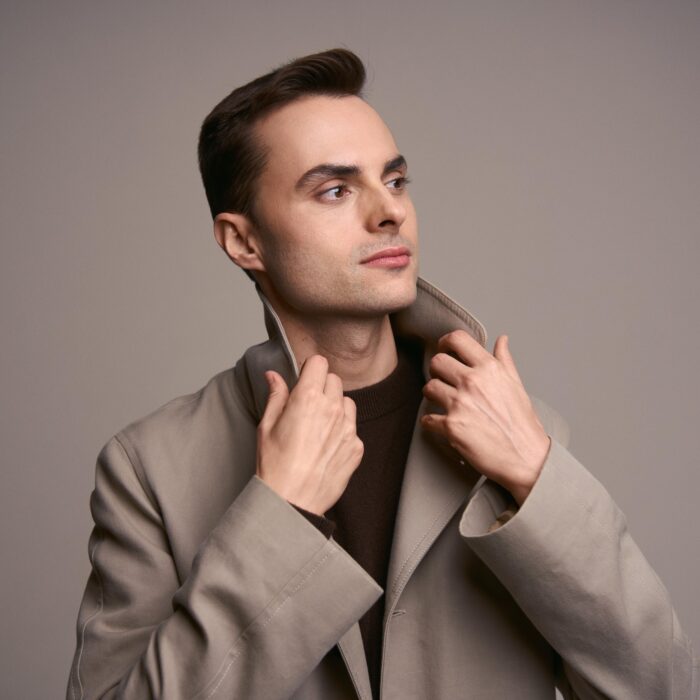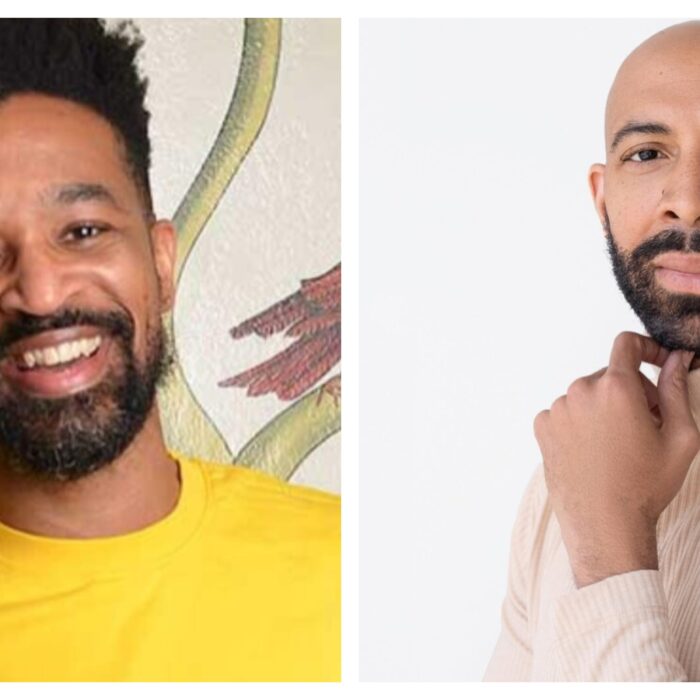
Q & A: Paolo Bordogna On His Houston Grand Opera Debut As Leporello in ‘Don Giovanni’
By Francisco SalazarOver the last 15 years, bass-baritone Paolo Bordogna has become one of the most esteemed specialists in the buffo/comic repertoire. His appearances have garnered him rave reviews and a huge following all over the world. He has performed at many of the leading theaters, including the Royal Opera House, Teatro alla Scala, Opéra National de Paris, Vienna State Opera, Teatro Real de Madrid, Liceu de Barcelona, Bayerische Staatsoper and the Sydney Opera House. He is also a frequent guest at the Rossini Opera Festival, where has had some of his biggest successes.
However, his U.S. appearances have been minimal. A few years ago, he made his Washington National Opera debut, appearing in two Rossini productions. However, he had not returned since then.
That is no longer the case as he is now engaged with his third production in the U.S., this time in Mozart’s “Don Giovanni” at the Houston Grand Opera and he will also return to the states in 2020 and 2021.
In preparation for his debut, Bordogna spoke with OperaWire about Mozart, Bel-Canto and his upcoming return to Pesaro this summer.
OperaWire: You’re making your Houston Grand Opera debut. Can you tell me what it is like to be performing with a company like Houston and what are you excited about for this debut?
Paolo Bordogna: This is the third time I am performing in the States; there will be more engagements in the future and I am extremely happy about it. Here at the Houston Grand Opera I have found a most friendly atmosphere, which has made me feel at ease, allowing me to fully express my artistic potential.
OW: Is there a difference between working in the States than in your Europe?
PB: I don’t think working here is any different than in Europe or in all the other international opera houses I have performed: when the intent is common to all the professional levels within such a complex machine as opera, everything becomes easier, and not only the artists, but particularly the audiences – who will watch a successful performance – will benefit from it.
OW: You’re performing the role of Leporello. What are the greatest challenges of this character and how has your interpretation evolved over the years?
PB: He has always fascinated me for his touching humanity. The text may push the artist to try and obtain easy approval and success from audiences. In all these years I have been refining the characterization of my roles, keeping in mind that “less is more.” From a vocal point of view, it’s long and complex, but the more time I spend with him the more I happily realize that it fits me like a glove.
OW: What does Kasper Holten’s production add to the character and what is the relationship of Giovanni and Leporello in this production?
OW: In this production the finale of Act two with the moralizing E Major ensemble is not performed: the opera will end with Don Giovanni’s death and the last thing the audience will hear will be Leporello’s heart-wrenching scream. I confess that it is a very dramatic scene for me and I had to learn to act without allowing myself to be dramatically involved. As a matter of fact, in Mr. Holten’s vision, Leporello is tied to Don Giovanni by a feeling very close to love, which will make their separation even more painful.
OW: What are some of your favorite moments in the score and what interesting elements in Mozart’s score do you most love to sing?
OW: Above all the ingenious “Catalog aria” (Madamina, il catalogo è questo”) which I had the pleasure to record. In addition to this, there are three musical moments I feel closely connected to: “Perdon, perdono Signori” (in the Sextet) and “Deh proteggete oh Dei la sua credulità” in the trio with Don Giovanni and Elvira. These are phrases exalting Leporello, removing his from the mono-dimensional quality of the typical “Commedia dell’Arte” mask. Finally, the entire Cemetery Scene is in my view a true “theatrical” masterpiece where both Da Ponte and Mozart expressed their ingenious synergy.
OW: You sing a lot of Rossini and Bel-Canto. Can you tell me what the difference is between the Bel-Canto music and that of Mozart? Are there any similarities? Is it easy to transition from Bel-Canto to Mozart?
PB: For me, Mozart is bel canto. His long phrases, pure style, elegant sound, virtuoso passages and coloratura make him an essential bel canto composer. Both Rossini and Verdi said they kept the score of “Don Giovanni” on their pianos, considering it an absolute reference cornerstone in the history of opera.
OW: Tell me about working with this cast and conductor. What have you discovered about Leporello in working with them?
PB: Opera is that form of show so radically alive that each production, even each performance is unique, and this happens also thanks to the richness originating from the collaboration among ever changing artists. As I said before, in this production we were lucky to work in the greatest harmony and involvement, staff and artists. All this was very important in this production, where the trio Don Giovanni/Elvira/Leporello is highlighted, and I’ve found in Melody Moore and Ryan McKinny two awesome traveling companions.
OW: You’ll be back at the Rossini Opera Festival this summer for “L’Equivoco Stravagnate.” Tell me about this rarely performed work. What can audiences expect and have you ever performed the work? What are the challenges of the piece and what musical elements can audiences expect to hear from Rossini?
PB: As the titles itself (“The Extravagant Misunderstanding”) suggests, it’s a peculiar opera, with an extremely funny libretto, full of irreverent double entendres, so much that when it was premiered it was censored after only three performances. My role, Gamberotto, fits the Rossinian catalog of fathers and guardians who end up fooled by stubborn young people. Differently from other titles, however, the space devoted to the buffo is bigger and he has three arias, such as “Parla, favella e poi” and its writing which plays with the typical model of the Baroque “arie di furore,” demanding a prefect control of the so-called “agilità di forza”.
OW: Tell me about the experience of the Rossini Opera Festival and why it’s such an important festival? What does Rossini mean to you and what do you discover every time you sing his music?
PB: I have a great affection for the Rossini Opera Festival and its hosting town, Pesaro. Under the guide and vision of Gianfranco Mariotti and Alberto Zedda first and Ernesto Palacio after, the Festival has entrusted me with bigger and bigger roles, giving me the most precious possibility to grow as an artist in a fertile and stimulating environment like few others in the world.
This has allowed me to explore Rossini’s composition method and discover that while his musical writing demands technical and vocal scrupulousness, the archetypal dramaturgy of his roles allows the interpreters a wide freedom. This particular dichotomy makes Rossini, in today’s world of opera directing, a very modern composer.


